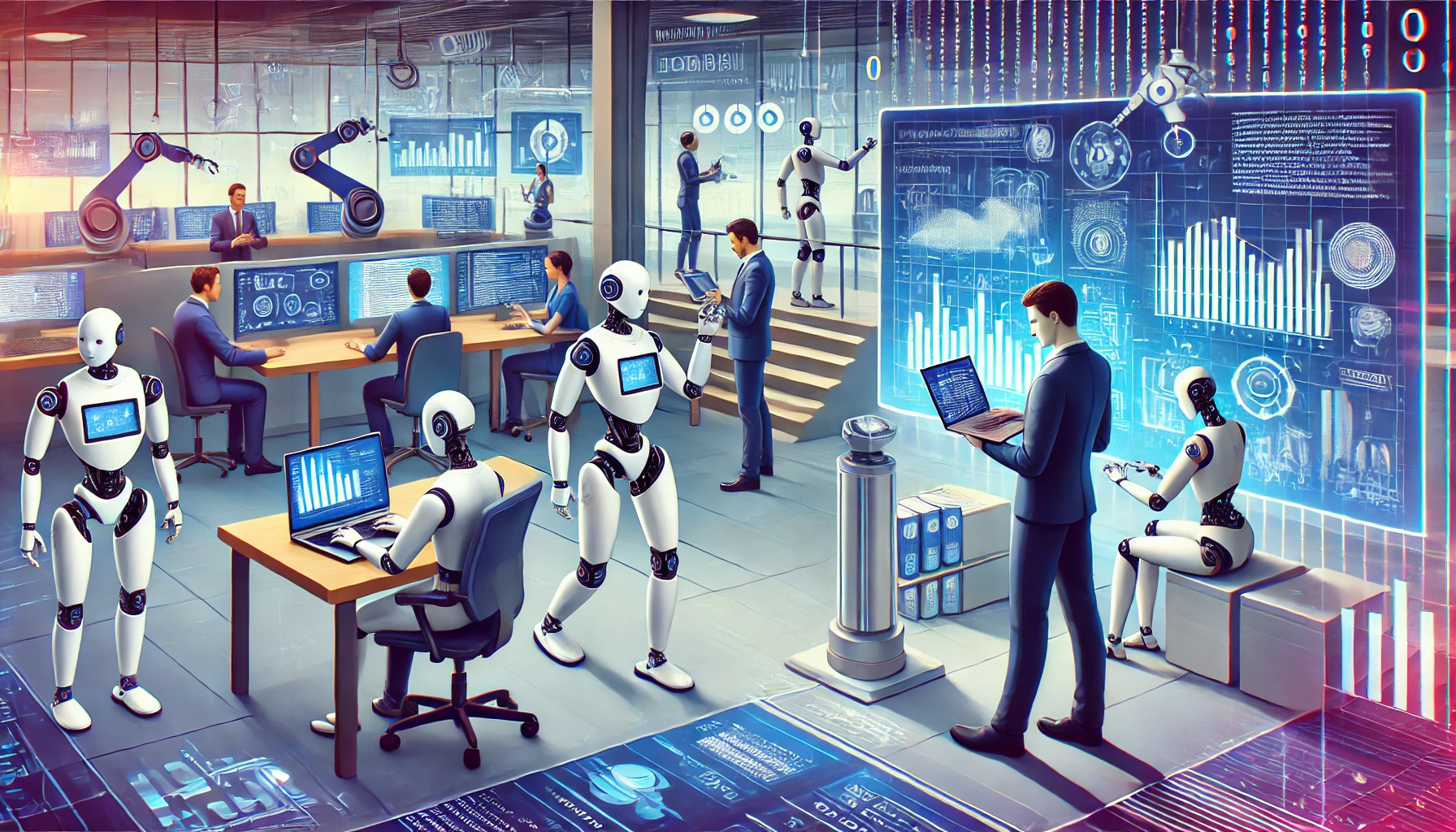Automation, driven by advancements in artificial intelligence (AI), robotics, and machine learning, is revolutionizing industries and redefining the global job market. While automation has been a part of industrial progress for decades, the rapid pace of technological development in recent years has transformed its scope and impact. From manufacturing to healthcare, logistics to education, automation is reshaping how work is done, altering the skills in demand, and creating both opportunities and challenges for workers. In this article, we explore how automation is changing the demands of the job market and provide actionable insights for navigating these changes.
The Rise of Automation: A Snapshot
Automation refers to the use of technology to perform tasks with minimal human intervention. While it initially emerged in factory settings to streamline repetitive manual labor, it now encompasses advanced cognitive tasks such as data analysis, decision-making, and customer service.
Key drivers of automation include:
- AI and Machine Learning: These technologies enable systems to learn and adapt, performing complex tasks like natural language processing, image recognition, and predictive analytics.
- Robotics: Robots are no longer confined to assembly lines; they’re now used in healthcare (surgical robots), logistics (automated warehouses), and retail (self-checkout systems).
- Cloud Computing: Cloud-based platforms facilitate the scalability of automated solutions, making them accessible to businesses of all sizes.
- IoT (Internet of Things): Connected devices collect and analyze data in real time, driving automation in sectors like agriculture, energy, and transportation.
Industries Most Impacted by Automation
1. Manufacturing
Manufacturing has been at the forefront of automation for decades, with technologies like robotic arms and assembly line automation increasing productivity. Recent advancements, such as smart factories powered by AI and IoT, have further optimized operations, reducing downtime and costs.
- Example: Tesla’s Gigafactories employ advanced robotics to streamline electric vehicle production.
- Impact: While automation reduces the need for manual labor, it increases demand for technicians and engineers who can maintain and program these systems.
2. Logistics and Warehousing
Automation is transforming supply chain management with technologies like autonomous vehicles, drone deliveries, and automated sorting systems.
- Example: Amazon’s fulfillment centers use robots to move goods, improving efficiency and accuracy.
- Impact: Jobs involving repetitive tasks are declining, while roles in robotics maintenance and supply chain optimization are growing.
3. Healthcare
Automation is enhancing patient care through robotic surgery, AI diagnostics, and automated administrative tasks.
- Example: IBM Watson’s AI is used to analyze medical data and suggest treatment options.
- Impact: While some administrative roles are being automated, there is increased demand for healthcare professionals skilled in using these advanced tools.
4. Retail
Self-checkout systems, inventory management robots, and personalized AI-driven recommendations are reshaping the retail experience.
- Example: Walmart uses AI to monitor inventory and predict demand.
- Impact: Entry-level retail jobs are declining, but opportunities in e-commerce and data analytics are expanding.
Skills in Demand: Adapting to the Automation Era
As automation takes over routine and repetitive tasks, the job market is increasingly favoring skills that complement technology rather than compete with it. Here are key areas where demand is growing:
1. Technical Skills
- Programming and Coding: Proficiency in languages like Python, Java, and SQL is essential for developing and managing automated systems.
- Data Analysis: Skills in analyzing and interpreting large datasets are critical for roles in AI, machine learning, and business intelligence.
- Cybersecurity: As automation grows, so does the need to protect automated systems and data from cyber threats.
2. Creative and Problem-Solving Skills
Automation struggles with creativity and critical thinking, making these skills highly valuable. Jobs in design, innovation, and strategic planning are less likely to be replaced by machines.
3. Interpersonal and Emotional Intelligence
Roles requiring empathy, negotiation, and relationship management remain essential, particularly in healthcare, education, and customer service.
4. Adaptability and Lifelong Learning
As automation evolves, the ability to learn new tools and adapt to technological changes is a must. Certifications, online courses, and professional development programs are valuable investments in staying relevant.
Opportunities Created by Automation
While automation eliminates some jobs, it also creates new opportunities. Emerging roles include:
- AI Specialists: Professionals who develop and manage AI systems.
- Robotics Engineers: Experts who design and maintain robotic technologies.
- Data Scientists: Specialists who analyze data to derive actionable insights.
- Automation Consultants: Professionals who help businesses implement and optimize automation strategies.
Challenges Posed by Automation
1. Job Displacement
Automation disproportionately affects low-skilled roles, leading to job losses in certain sectors. Governments and organizations must invest in retraining programs to support affected workers.
2. Skills Gap
The rapid pace of technological change often outpaces the ability of the workforce to adapt, creating a mismatch between job requirements and available talent.
3. Economic Inequality
Automation can exacerbate income inequality by concentrating wealth in technology-driven industries. Addressing this issue requires policies that ensure equitable distribution of resources and opportunities.
How to Stay Relevant in an Automated World
To thrive in a job market shaped by automation, individuals should:
- Invest in Education and Training: Enroll in courses that teach in-demand skills like coding, data analysis, and machine learning.
- Embrace Continuous Learning: Stay updated with industry trends and advancements through webinars, certifications, and online platforms.
- Focus on Soft Skills: Develop communication, leadership, and problem-solving abilities.
- Seek Cross-Disciplinary Knowledge: Combining expertise from multiple fields (e.g., technology and business) increases your value.
- Leverage Technology: Use digital tools and platforms to enhance your own productivity and skill set.
Conclusion
Automation is undeniably transforming the job market, creating both challenges and opportunities. While some roles are becoming obsolete, new and exciting careers are emerging in technology, data analysis, and robotics. By focusing on skills that complement automation, embracing lifelong learning, and adapting to change, individuals can navigate this evolving landscape and thrive in an automated world. The key is not to fear automation but to harness its potential to enhance your career and contribute to a more innovative future.
